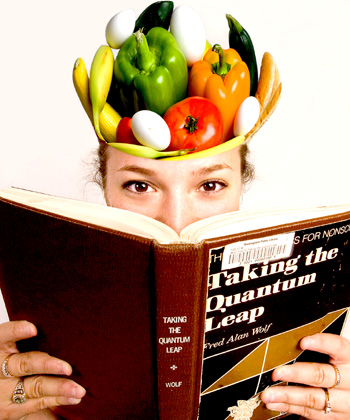Have you ever forgotten where you put your keys? Struggled to recall where you parked your car? Or perhaps you left home without your wallet or failed to send a birthday card to your mother-in-law? If so, you’re not alone. These minor memory lapses happen to everyone. But what if you could do something to keep your memory sharp and your brain in peak condition?
Mental health experts agree that regular brain workouts, much like physical exercise, are essential for supporting memory and overall cognitive function. While age can be a factor in occasional forgetfulness, it is often our failure to actively engage our mental capacities that leads to lapses in memory. Just as consistent physical exercise strengthens muscles, mental exercises can bolster memory, enhance cognitive abilities, and improve motor skills.
The Importance of Mental Stimulation
Memory and motor skills thrive on stimulation. Engaging in daily mental workouts can promote brain health and keep cognitive faculties sharp. Here are a few effective ways to exercise your brain:
Start by watching the daily news. Make a habit of being aware of local and global events. At the end of the day, challenge yourself to recall the major headlines.
When grocery shopping, make a list—but don’t rely on it. Try to remember the items you need and then cross-check your list to see how well you did.
Dedicate 30 minutes to an hour solving riddles, crossword puzzles, or playing mentally engaging games like Scrabble, chess, or bridge.
Avoid monotony. A repetitive routine can lead to sluggish thinking. Mix up your daily activities to keep your mind active.
Stay socially connected. Joining clubs or craft classes and maintaining regular interactions with others can stimulate the brain. The challenges of social engagement keep the mind alert and adaptable.
Exercise: A Boost for the Body and Brain
Daily physical activity supports overall health, including brain function. Exercise enhances blood circulation, ensuring the brain receives a steady supply of oxygen. The brain, although it comprises just 2% of our body mass, consumes a staggering 20% of the oxygen we breathe. Activities like dancing or brisk walking combine physical exertion with mental engagement, making them particularly beneficial for brain health.
Reducing Passive Activities
While relaxation has its place, spending excessive time in front of the TV can dull cognitive function. Unlike reading or interactive learning, TV watching is a passive activity that doesn’t challenge the brain. Limit screen time, focusing instead on stimulating activities like reading or joining a book club to discuss ideas and expand your thinking.
The Role of Diet in Brain Health
What we eat has a profound impact on brain performance. Certain foods are known as "brain foods" because they support healthy brain function. Examples include:
Meat, fish, and egg yolks, which are rich in nutrients essential for the brain.
Milk and milk products, providing critical vitamins and minerals.
Peanuts, wheat germ, and liver, all excellent sources of energy for the brain.
Cruciferous vegetables like broccoli, which are packed with antioxidants.
Key Nutrients and Supplements for Brain Health
Beyond everyday foods, specific nutrients and herbs can enhance brain health:
Blueberry Extract: Known for its antioxidant properties, it supports healthy cell-to-cell communication.
Cognizin®: A proprietary compound containing Citicolene, a form of Vitamin B, which aids energy production in the brain.
Vitamin B-12: Essential for the health of nerve and red blood cells, this vitamin plays a significant role in maintaining cognitive function.
Huperzine: An antioxidant that supports cognitive functions and protects against oxidative damage.
Vinpocetine: This nutrient enhances blood flow to the brain, ensuring it receives adequate oxygen and nutrients.
Challenges of a Balanced Diet
While incorporating these brain foods into your diet is ideal, it can be challenging to achieve balance daily. Aging further complicates this, as the body’s ability to digest and absorb nutrients diminishes over time. For this reason, nutritional supplements, such as Memory Matrix, can bridge the gap. These supplements combine herbs, antioxidants, and essential vitamins to support memory, cognitive function, and motor skills effectively.
The Brain’s Ability to Adapt
One of the most exciting aspects of brain health is its adaptability. Contrary to outdated beliefs, the brain retains the ability to grow new neurons and learn new skills even as we age. This adaptability, known as neuroplasticity, underscores the importance of consistently challenging the mind. Whether through puzzles, social interactions, or physical activities, the brain thrives when stimulated.
Integrating Healthy Habits
To maximize brain health, consider integrating a combination of physical, mental, and dietary practices. Engage in activities that challenge your mind, maintain an active lifestyle, and fuel your body with brain-friendly foods. Supplementation can provide additional support, ensuring your brain receives all the nutrients it needs to function optimally.
Memory lapses and cognitive decline are not inevitable parts of aging. By adopting a proactive approach that combines mental exercises, physical activity, a balanced diet, and targeted supplementation, you can support brain health and enhance memory function. The benefits extend beyond improved recall; they encompass better problem-solving skills, greater mental clarity, and an overall enriched quality of life. Start investing in your brain today—it’s the best workout you’ll ever commit to!













